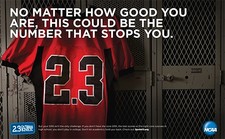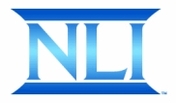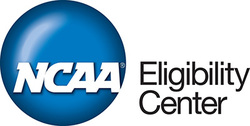Prospective Collegiate Student-Athlete
Academic Requirements
|
The NCAA Eligibility Center certifies whether prospective college athletes are eligible to participate in varsity sports and receive scholarship money at NCAA Division I or II institutions. It does this by reviewing the student-athlete's academic record (core GPA), SAT or ACT scores, and amateur status to ensure conformity with NCAA rules. The core GPA only includes grades from English, Math, Science, Social Studies and certain NCAA approved courses. http://web1.ncaa.org/ECWR2/NCAA_EMS/NCAA_EMS.html
NCAA Eligibility Center Quick Reference Guide |
|
The SAT is a standardized test for most college admissions in the United States. The current SAT Reasoning Test takes about 3 hours and 45 minutes to finish and costs $51. Possible scores range from 600 to 2400, combining test results from three 800-point sections Mathematics, Critical Reading and Writing. The SAT is owned, published and developed by the College Board. The NCAA only uses points from Mathematics and Critical Reading. http://sat.collegeboard.org/
|
|
The ACT college readiness assessment is a standardized test for high school achievement and college admissions. The ACT consist of four tests: English, Mathematics, Reading and Sciences. The four tests are scored individually on a scale of 1–36, and a Composite score is provided which is the whole number average of the four scores. http://www.actstudent.org/
|
Division I Initial-Eligibility Changes - Class of 2016

Prospective student-athletes who achieve the current minimum initial-eligibility standard on the test score-GPA sliding scale with at least a minimum 2.0 core-course GPA would continue to be eligible for athletically related financial aid during the first year of enrollment and practice during the first regular academic term of enrollment. Student-athletes serving this academic redshirt year would have to successfully complete nine semester or eight quarter hours during their first academic term to be eligible for practice during their second term.
For immediate access to competition, prospective student-athletes will be required to present at least a 2.3 core-course GPA and an increased sliding-scale credential. Specifically, prospects need to earn about a half-point higher GPA for a given test score compared to the standard for aid and practice. For example, an SAT score of 1,000 (combined math and critical reading scores) would require a minimum 2.5 high school core-course GPA for competition or a minimum 2.0 high school core-course GPA for aid and practice only.
Incoming student-athletes will be required to successfully complete 10 of the 16 total required core courses before the start of their senior year in high school. Seven of those 10 courses must be in English, math and science.
For immediate access to competition, prospective student-athletes will be required to present at least a 2.3 core-course GPA and an increased sliding-scale credential. Specifically, prospects need to earn about a half-point higher GPA for a given test score compared to the standard for aid and practice. For example, an SAT score of 1,000 (combined math and critical reading scores) would require a minimum 2.5 high school core-course GPA for competition or a minimum 2.0 high school core-course GPA for aid and practice only.
Incoming student-athletes will be required to successfully complete 10 of the 16 total required core courses before the start of their senior year in high school. Seven of those 10 courses must be in English, math and science.
Recruiting Information

The National Letter of Intent (NLI) is a binding agreement between a prospective student-athlete and an NLI member institution.
- A prospective student-athlete agrees to attend the institution full-time for one academic year (two semesters or three quarters).
- The institution agrees to provide athletics financial aid for one academic year (two semesters or three quarters).
Recruiting Terms
Contact Period: During this time, a college coach may have in-person contact with you and/or your parents on the college campus. The coach may also watch you play or visit your high school. You and your parents may visit a college campus and the coach may write and telephone you during this period.
Dead Period: A college coach may not have any in-person contact with you or your parents on or off campus at any time during a dead period. The coach may write and telephone you or your parents during this time.
Evaluation period: During this time, a college coach may watch you play or visit your high school, but cannot have any in-person conversations with you or your parents off the college's campus. You and your parents can visit a college campus during this period. A coach may write and telephone you or your parents during this time.
Quiet period: During this time, a college coach may not have any in-person contact with you or your parents on the college campus. The coach may not watch you play or visit your high school during this period. You and your parents may visit a college campus during this time. A coach may write or telephone you or your parents during this time.
Official visit: Any visit to a college campus by you and your parents paid for by the college. Up to 5 official visits are permitted and are taken during your senior year. The college may pay all or some of the following expenses:
Unofficial visit: Any visit by you and your parents to a college campus paid for by you or your parents. The only expense you may receive from the college is three complimentary admissions to a home athletics contest. You may make as many unofficial visits as you like and may take those visits at any time. The only time you cannot talk with a coach during an unofficial visit is during a dead period.
Dead Period: A college coach may not have any in-person contact with you or your parents on or off campus at any time during a dead period. The coach may write and telephone you or your parents during this time.
Evaluation period: During this time, a college coach may watch you play or visit your high school, but cannot have any in-person conversations with you or your parents off the college's campus. You and your parents can visit a college campus during this period. A coach may write and telephone you or your parents during this time.
Quiet period: During this time, a college coach may not have any in-person contact with you or your parents on the college campus. The coach may not watch you play or visit your high school during this period. You and your parents may visit a college campus during this time. A coach may write or telephone you or your parents during this time.
Official visit: Any visit to a college campus by you and your parents paid for by the college. Up to 5 official visits are permitted and are taken during your senior year. The college may pay all or some of the following expenses:
- Your transportation to and from the college
- Room and meals (three per day) while you are visiting the college
- Reasonable entertainment expenses, including three complimentary admissions to a home athletics contest.
Unofficial visit: Any visit by you and your parents to a college campus paid for by you or your parents. The only expense you may receive from the college is three complimentary admissions to a home athletics contest. You may make as many unofficial visits as you like and may take those visits at any time. The only time you cannot talk with a coach during an unofficial visit is during a dead period.










